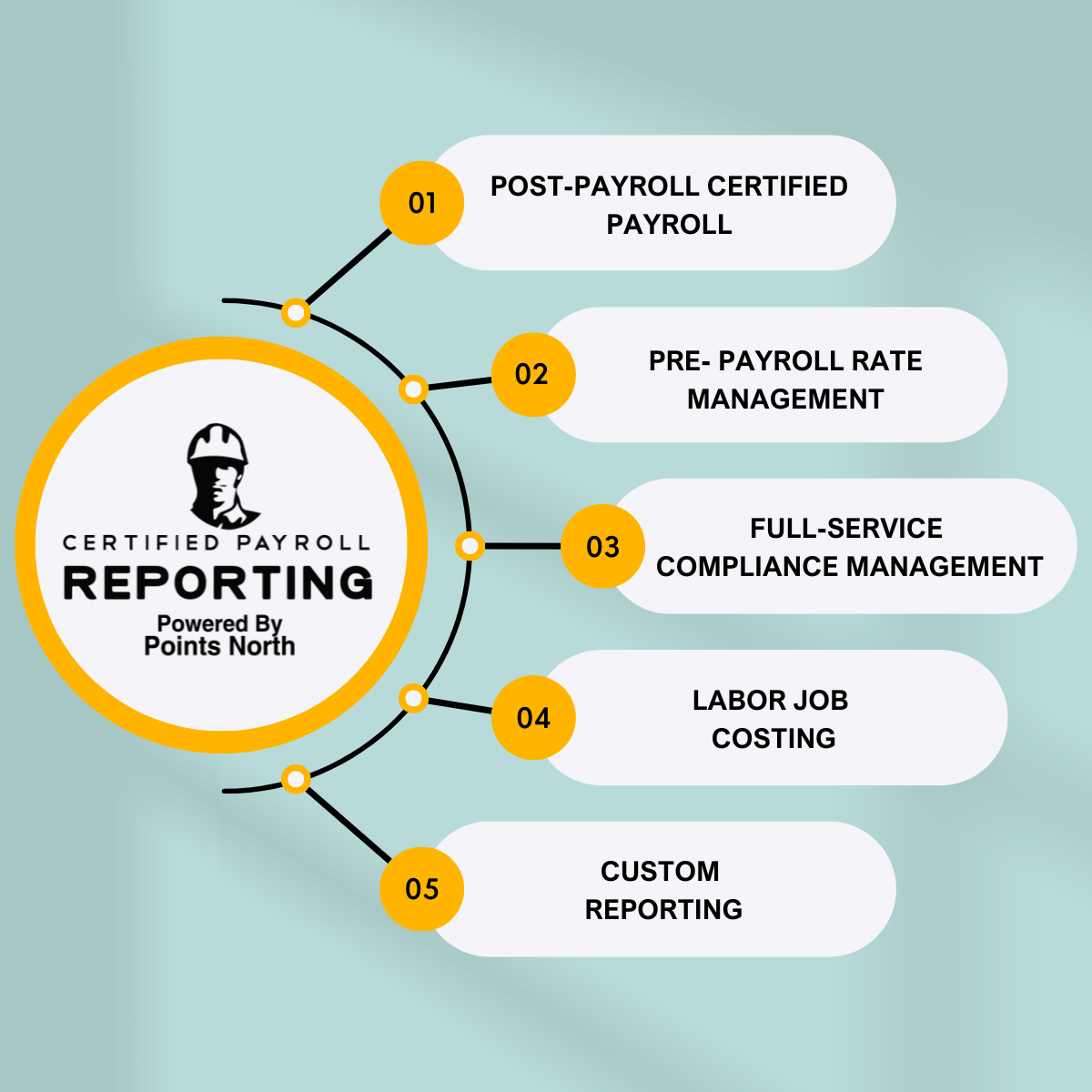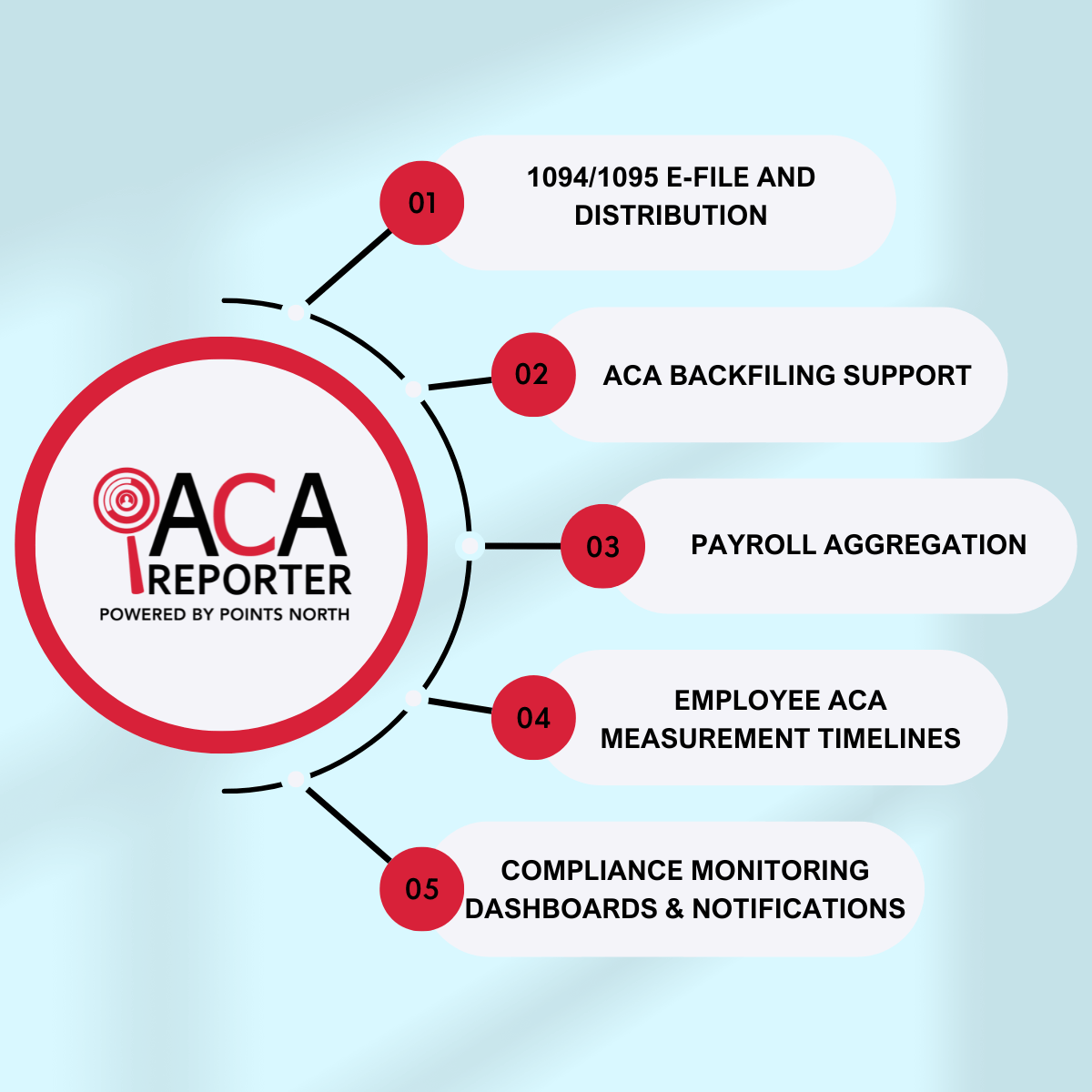
Understanding prevailing wage laws and maintaining compliance is crucial for construction companies bidding on or working on any government-funded contract. Prevailing wages refer to state and local hourly pay rates established for certain occupations. They are mandated on public works projects to ensure fair worker compensation.
However, prevailing wage requirements are complex, frequently updated, and vary across locations and job types. Without stringent compliance systems, contractors face major risks including financial penalties, lost contracts, lawsuits, and criminal charges. Even simple oversights can put operations in jeopardy.
Proper prevailing wage compliance involves:
- Thoroughly researching rates
- Classifying your workforce accurately
- Using compliant bidding practices
- Documenting pay properly
- Conducting audits
For contractors without robust processes, it can be incredibly challenging to track employee rate management, correctly fill out manual certified payroll forms, and stay on top of all of the other day-to-day documentation. Being non-compliant, of course, is not an option. Getting prevailing wage determination wrong — even accidentally — can lead to bid rejection, revoked contracts, withheld payments, lawsuits, and extra wage payouts in addition to fines.
Read on to learn more about prevailing wages and why compliance is so crucial for contractors seeking and performing government-funded work.
What Are Prevailing Wages?
Prevailing wages refer to hourly rates established for certain occupations by location. They are based on careful wage surveys of similar private projects in the area.
Prevailing wage laws can exist at the state and/or municipal level and apply to all government-funded contracts above a certain amount. For example, a state may require prevailing wages on all public projects over $25,000 while a city mandates it for all contracts over $10,000.
On projects subject to prevailing wage regulations, all covered workers must receive pay and benefits that meet or exceed these published prevailing rates. This includes construction trades like electricians, carpenters, plumbers, and operators, but may also cover services like janitorial, security guard, and landscaping.
Rates are based on local standards, so prevailing wages in one city or county can be different from a neighboring area in the same state. Prevailing wages also vary by job classification based on factors like experience, licensure, apprentice status, and supervisory duties.
To ensure compliance, contractors must closely track prevailing wage determinations which are updated periodically, sometimes multiple times a year. Keeping up with changing requirements in multiple locations for various trades is complex but necessary.
What Is the Purpose of Prevailing Wages?
Prevailing wage regulations primarily aim to protect local labor standards and prevent unfair bidding on government contracts. Two main goals of prevailing wages are:
- Fair Compensation - The core purpose of prevailing wages is to prevent worker underpayment on public contracts compared to similar private sector jobs in the area. Prevailing wage rates are based on local market conditions to ensure taxpayer-funded projects do not subsidize substandard pay and benefits.
- Labor Market Stability - Absent prevailing wage rules, contractors might engage in destructive bidding wars to win government work. Prevailing wages take compensation out of the equation, putting contractors on equal footing regardless of their labor costs.
Prevailing wages aim to promote fair, efficient public contracting focused on quality and competence rather than a race to the lowest labor costs. They support local workers and contractors while preventing thin margins and substandard work stemming from hyper-cost-conscious competition.
How to Determine a Prevailing Wage
Accurately determining and paying the prevailing wage is crucial for compliance and avoiding penalties. There are a few prime sources employers should use to find the required prevailing rates for a project or worker program which come directly from the US Department of Labor (DOL).
Here are the main sources for prevailing wage rates:
- National Prevailing Wage Center (NPWC)
- Part of the Department of Labor
- Provides prevailing wage data for labor certification and visa programs
- You must submit a form such as the ETA 9141 to request prevailing wage determinations directly to the NPWC
- Department of Labor Online Wage Library
- Searchable online database publishes prevailing wage rates by area and occupation
- Rates available by location, occupation, and classification
- Data is compiled by the Bureau of Labor Statistics through its Occupational Employment Statistics (OES) program
Using Department of Labor prevailing wage sources ensures rates comply with program requirements. Rates are based on actual private sector wage surveys for each occupation and location. This provides the legally mandated baseline pay.
Prevailing Wage Compliance Benefits
Ensuring full compliance with prevailing wage requirements provides contractors with wide-ranging benefits. By partnering with a prevailing wage compliance expert and implementing robust systems, contractors can avoid substantial risks while also creating benefits for themselves. Here are a few of the ways being compliant with the Davis-Bacon Act can benefit your business:
Offering a Prevailing Wage Can Help You Comply With the Law
Failing to properly pay and document prevailing wages leads to substantial legal risks including:
- Wage restitution to rectify underpayment of workers
- Financial penalties for willful or repeated violations
- Disqualification from bidding on future government contracts
- Lawsuits from workers or labor unions over underpayment
- Fraud charges for falsifying payroll records
- Reputational damage that undermines future business
Mistakes can happen given the complexity of prevailing wage rules and frequency of rate changes. However, lacking rigor in compliance dramatically escalates liability. Robust systems ensure prevailing wages are calculated correctly, workers are classified properly, pay is documented, and audits are performed. This protects contractors from inadvertent violations while promoting smooth contracting relationships and avoiding red flags.
The Payoff of Prevailing Wage Compliance
To receive funding and payments on government contracts, full prevailing wage compliance is generally required. Lacking compliance can lead to:
- Rejection of bids for public projects due to wage errors
- Loss of contracts if agencies uncover underpayment
- Inability to tap into grant funding sources that mandate prevailing wages
- Stop-work orders and payment cancellations mid-project
- Extra administrative costs to correct underpayment issues
Conversely, a reputation for rigorous prevailing wage management can give contractors a competitive edge. Compliance-oriented contractors are more likely to win bids and consistently receive contract payments.
Investing in robust systems and partnering with experts pays dividends by enabling contractors to consistently win and profit from government work. Prevailing wage compliance is a strategic imperative for accessing public projects.
Ensuring Your Prevailing Wage Compliance
With complex prevailing wage rules and frequent rate changes, keeping up with compliance requirements can be extremely challenging for contractors. Our Certified Payroll Reporting software simplifies the process through automation and expertise.
Certified Payroll Reporting is a fully customizable solution that manages the entire prevailing wage payroll process. Key features include:
- Custom wage rate setup based on your unique needs
- Automated import of employee time data from any system
- Built-in calculations for overtime, fringes, and special rules
- Seamless exports to payroll platforms
- Post-Payroll reporting compliance
- Ongoing system updates as regulations change
- An option for full-service management
By partnering with us, you can ensure certified payrolls are completed accurately and on time. We handle the wage analysis, data imports, custom calculations, report generation, and compliance updates so you can focus on your work.
Thousands of contractors rely on Certified Payroll Reporting to guarantee proper compensation and fully compliant reporting. Reduce stress and risk by letting us manage your certified payroll process end-to-end. Contact us today to learn more and simplify prevailing wage compliance.






.png)